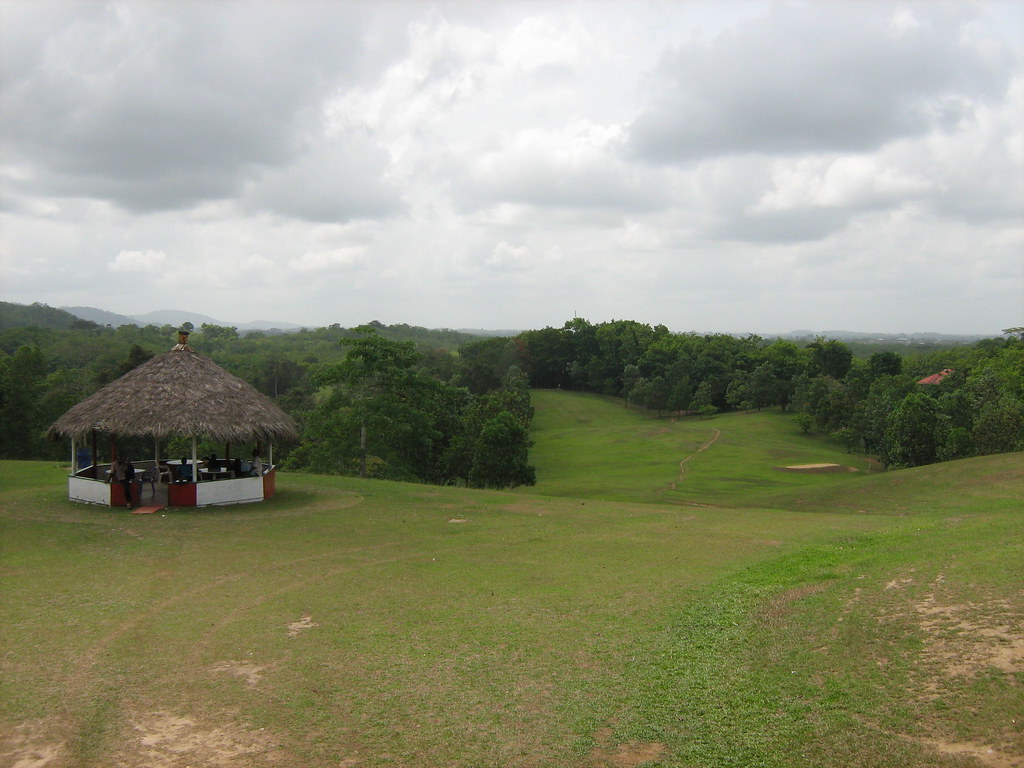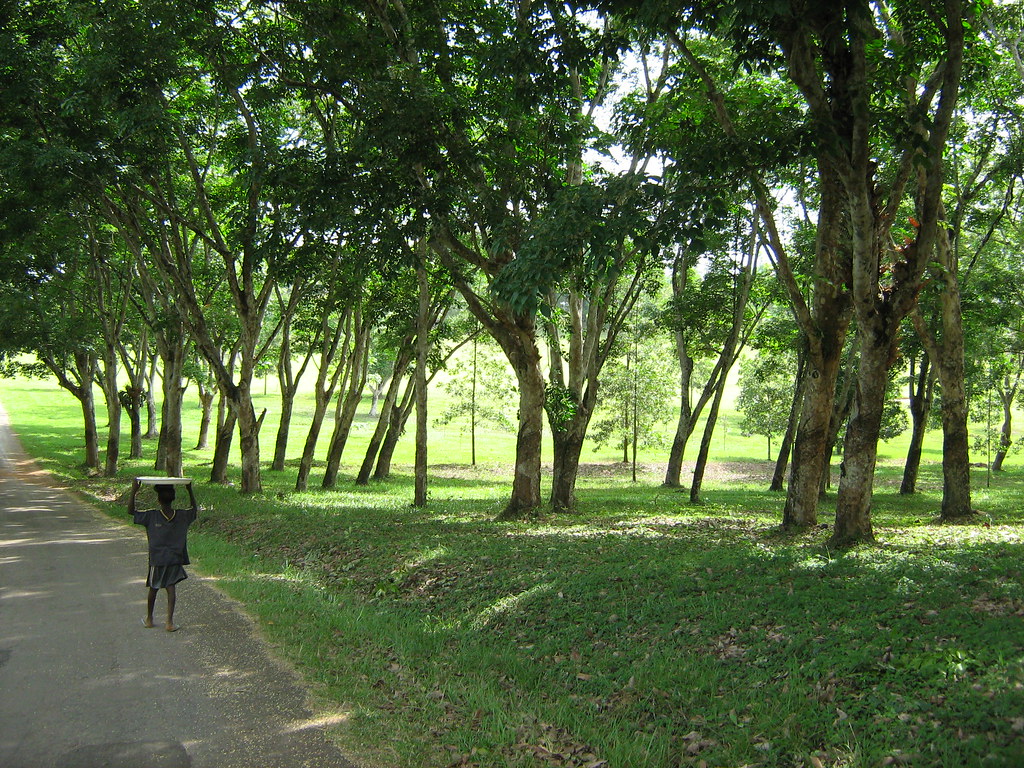






As you can imagine, life on the ship is drastically different from life on the red soil. Though we were indeed docked in Africa, and had many opportunities to serve our Liberian brothers and sisters on board the ship's hospital, one could easily feel isolated from the actual country itself. You could essentially forget that you were in Liberia and miss out on the opportunity to embrace its rich culture. As a result, many of us recognized the need to get off ship and experience the sights, sounds, smells, and tastes of land around us. Going to church, shopping in the market, visiting orphanages and schools, guaranteed such exposure. On one such outing, I had the pleasure of visiting the Firestone plant, one of the first American companies to tap into the rich natural resources of Liberia.
Firestone, now Called Bridgestone, is a major manufacturer of tires around the world. And Liberia just happens to have one of the largest naturally occuring crop of rubber trees anywhere. An hour and a half drive outside of Monrovia, Firestone owns thousands of acres of rubber trees around which they have built a plantation. Employees work and live on this land in planned "districts" that include homes, schools, churches, markets, and even a golf course (see pictures above). The combination of housing, employment, and breathtaking country side might seems ideal to the outsider. However, I caution you to remember that things are not always what they appear to be. Firestone has had a long history of abusing their employees, forcing them to work long hours for little or no pay. Just a few weeks back, the government was bracing themselves for an uprising of employees who had not been paid by the company in over eight weeks! I ask you then, what is it that differentiates "employment" from indentured servant hood, or even slavery?
Needless to say, being at the plant evoked a great deal of internal conflict for me. The grounds were spectacular. The rubber trees were fascinating with their tiny little sap "taps" and unique foliage (the leaves actually grow out of the trunk in some instances, rather than off of the branches.) The opportunity to get off the ship and out of the city was much appreciated. BUT something was haunting me as I walked the winding paths of the EMPTY golf course and SILENT playgrounds. I couldn't help but wonder if these trees could talk, what story would they tell?

2 comments:
Ms. O'Hara:
I need to take issue with your characterization of Firestone Liberia and some facts you just have flat wrong. First of all, please understand that rubber trees do not "naturally occur." every tree that you see on our farm is an investment; planted, fertilized and nurtured by Firestone. Secondly, the workers strike in December had nothing to do with unpaid wages. Employees are paid regularly by the company. The strike regarded a dispute between two factions of the union (not the Company) that resulted in litigation. The workers struck in December to urge the Liberian Supreme court to resolve their internal dispute, which the court did. Firestone then promptly recognized the prevailing faction and is now in negotiations with the union toward a new contract.
Some other important facts: Even the lowest paid Firestone agricultural worker earns wages that are multiples of what a government civil servant earns in Liberia. In addition, the worker receives free healthcare and education for his family, subsidized food, up to four weeks of paid vacation and a pension upon retirement. Free housing is also provided and the company is in an aggressive post-civil war rebuilding program to replace housing that went through the 14 years of civil war.
By the way, you may be interested to know that Bridgestone has supported the work of MercyShips by supplying tires for MercyShips Europe's African operation vehicles.
Please visit our website at http://www.firestonenaturalrubber.com to learn more.
Thanks for taking the time to clarify Dan.
It is clear that I have much to learn about Firestone and its history. In fairness, however, much of what i reported with regard to the strike and to unfair treatment of employees came directly from workers themselves. People that I came in contact with, both on and off the ship, shared their personal experiences with Firestone and didn't seem to see things quite the same way that your company does.
Like any story in life, there are always two sides. I will gladly do my part to become more familiar with both.
In addition, thank you for past support of Mercy Ships. They are an incredible organization, looking only to serve the hopeless with love and healing. My opinions do not, by any means, represent theirs.
Thanks again,
Katie
Post a Comment